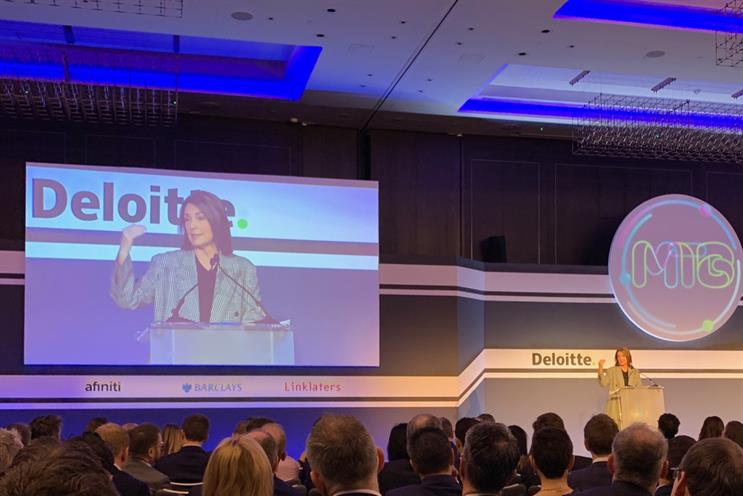
The quality of TV has never been higher and watching now has a "book club feel", with viewers wanting to be "well watched" – just like being "well read".
That is according to Dame Carolyn McCall, the chief executive of ITV, who told the Deloitte/Enders Analysis conference in London that critics who claim TV is "somehow broken" are mistaken.
"TV is alive and well," she declared. "It does need to continue to change and there’s no reason that it can’t.
"The reality is that viewers are enjoying a golden age of TV. The creation of new models, with Netflix at the core, means TV is actually at the top of its game."
She said "the choice on TV has never been richer" and "the quality and convenience has never been higher" while viewing has remained stable across all devices at about three hours a day for the past five years.
The Love Island and Broadchurch broadcaster's own research with focus groups identified how TV is a big talking point for people and "gives us cultural reference points", she said.
"A fascinating change for TV is our conversations now have more of a ‘book club’ feel," McCall explained. "As well as being well read, you can be well watched too. That never really existed before.
"Spoilers are huge social faux pas and people are really growing much more comfortable talking about themes, production quality, great characters."
TV’s enduring power is "why advertisers love our mass, simultaneously engaged audiences", she said.
McCall admitted the 16-34s demographic is under pressure but pointed out the age group has always been "elusive" for advertisers.
Her favourite statistic is that last year ITV delivered 366 programmes that each attracted more than one million 16-34s – "no other medium can match that," she said.
McCall, who has announced plans to launch Britbox, a joint subscription streaming service with the BBC, also highlighted TV’s ability to influence behaviour "positively" and cited Veg Power, its recent ad campaign to support healthy eating.
"Commercial TV achieves so many positive things and advertising should be recognised for the contribution it plays in this," she said, insisting a prospective ban on high fat salt and sugar (HFSS) food advertising would be counter-productive.
"It’s about [influencing] behaviour, it’s not about further regulation," she maintained.
McCall added that ITV is in the "advanced stages of talking to an ad tech platform" about bringing "programmatic advertising at scale" to the broadcaster.
'The death of the death of TV'
Karen Blackett, WPP’s UK country manager, echoed McCall’s comments that TV is not in decline. Instead there has been "simply a change in access points", Blackett told the conference.
"Really what we should be talking about is video – and by that I do not mean one second of video.
"In most of our econometric models if you look at long-term and short-term measures, video outperforms everything else in growth terms.
"I know there is a myth that TV is really only about long-term results but a 2018 study of more than 2,000 campaigns by Ebiquity and Gain Theory confirms TV advertising also delivers significant, short-term profits.
"Just so we are clear: TV is not dead," Blackett said. "In fact, I’d like to proclaim the death of the death of TV – here and now.
"It is just reinventing itself, as Carolyn told you, and video is still the most effective format we have with advertising."




.jpg)
.jpeg)
